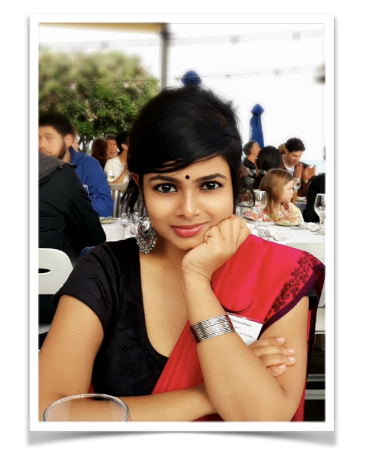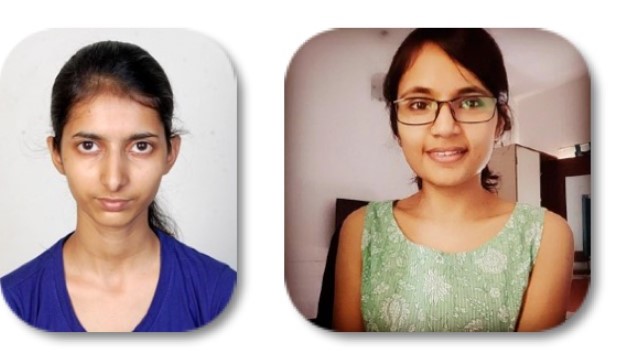

Meet the Glorious Women of Astronomy
An interview with Debatri Chattopadhyay, graduate student at OzGrav, Centre for Astrophysics and Supercomputing, Swinburne University of Technology, Australia.
Reportage by Kanchan Soni & Deepali Agarwal
What drove you to pursue Astrophysics as a research career?
I decided to become a physicist when I was 12 years old, after it became a part of my school curriculum. I was so much in love with physics that I could not think of pursuing anything else. It was a couple of years later, while reading about black holes in a popular science book that I thought I will specialise in Astrophysics. I remember the diagram in the book being "an artist’s representation", and thinking how cool it would be if we could know more about these mysterious dead stars. The first detection of gravitational waves from binary black hole merger and later the imaging of the shadow of the supermassive black hole were like childhood wish fulfillments. I am extremely grateful that I was fortunate enough to be able to chase my dreams from early teenage.
What hardships did you go through while being in your field?
I do acknowledge my privilege to be born to very liberal and science-enthusiast parents, both with backgrounds in biology and my father himself being a scientist. There have been extremely rare events of encountered problems but I have received way more active support and guidance from my professors and academic mentors than those hardships. It is also important to realise that like any other field or activity, occasional hardships might arise without any fault of an individual, but as long as there is enough human support, it becomes relatively easier to brave them. I would also thank my classmates from my higher education institutes - friends have each other's back in times of need and there is always more physics to discuss!
Could you list out the achievements in the course of research?
I am a Jagadis Bose National Science Talent Search (JBNSTS) scholar, which is an extremely prestigious honour. I have made original contributions in the research of the modelling of compact object binaries (like black hole or neutron star pairs). My first paper on double neutron stars has received the winning award by the Faculty of Science, Engineering and Technology (FSET), Swinburne University of Technology (Research Award 2020: HDR Outstanding Article). I also received commendation in the category the Research Award 2020 : Postgraduate Student of the Year. I have also been selected to be a part of the Homeward Bound Programme, a global leadership initiative for women in STEM. Above everything though, my research, my work, in itself is a fulfilling reward. The happiness one experiences in probing into the enigmas of the universe can be unparalleled.
Apart from research, what hobbies do you share?
I was trained as a dancer since I was 3 years old and hold a Diploma in Classical Manipuri Dance, a traditional Indian dance-form. I love dancing in my leisure hours. I am an avid reader since childhood and especially love reading the classics of Bengali and English literature. Story books open magical doors for one's mind and soul. I also got interested in sailing through my colleague Mark, and became a volunteer crew member for the Melbourne based tall ship Enterprize.
As a member of the LVK collaboration, how would you like to contribute to the Science community?
I am extremely passionate in continuing my research in the field of gravitational waves. There are more observing runs to happen, more technologically advanced detectors capturing more mysterious signals from the universe. The implication of this evolving dataset will keep the physicists busy for the upcoming future! Apart from work, I also enjoy teaching with my limited experience as a tutor during my PhD. The questions asked by some amazing students can help the teacher to think and gain more insight to the subject matter. I consider public outreach a responsibility of scientists and an important contribution to the society at large. I have been involved in delivering public lectures, panel discussions, writing popular science articles, volunteering for science weeks and would continue to do so.
What are your thoughts on Women in STEM?
I always found the under-representation of women in STEM odd and problematic since childhood. I was familiar with the achievements of Marie Curie, Lise Meitner, Jane Goodall, Barbara McClintock as so many other amazing women but barely saw their lives or works being depicted in tv shows back in the days. It was only after reaching a certain age that I realised the bias came as a generalised form from the society at large. With the human civilization hopefully moving towards a more egalitarian world, we have seen certain aspects of the society changing for better. My friend Isobel and I have decided to write a children's book about the awesome women in STEM from the past, who of course born in a very different era had way more hardships to face and yet triumphed everything to follow their love of science.

Deepali (L) and Kanchan (R) are doctoral students at the Inter-University Centre for Astronomy and Astrophysics, Pune, India
